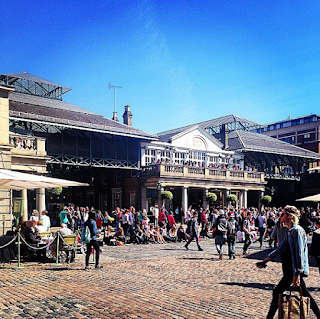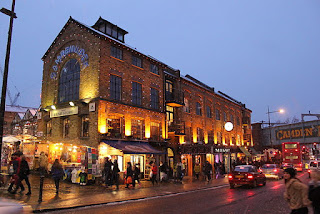Life on a Banana Farm - Part 2
Time to dish the dirt on the actual farming. There are only a few types of farms around Innisfail; papaya, rambutan and (by far the most common) banana. I was lucky and ended up on a banana farm with my 2 friends, so that automatically made life slightly easier. However, rumour has it that banana farming is one of the toughest things you can do. The first 3-4 weeks were by far the hardest and the thought of quitting crossed my mind more than once.
At the start of farming everyone told me it would eventually get better, and it did, but oh my god those first few weeks were SO tough. Literally every inch of my body ached. For me the top of my back, neck and hands hurt the most. I honestly struggled to put my socks on in the morning because my finger joints hurt so much. My friend’s wrist also became extremely swollen and she could hardly move them for the first week or so. The weather was also ridiculously hot and humid. Most days we were working in 40 degree heat and 90% humidity. It was unbearable. My body eventually got used to the work (it never got used to the heat) and the aches and pains became less frequent, but this didn't mean the work became any easier. The work was so repetitive and boring, plus I was constantly terrified of being fired (more on this later) that each day became somewhat of a mental challenge.
A typical day on my banana farm looked like this:
5:40am – alarm
6am – bus to the farm
6:30am – arrive at the farm
7am – begin work
9:30am – break (smoko)
9:45am – back to work
12pm – lunch
12:30pm – back to work
2:30pm – break (smoko)
2:45pm – back to work
4pm – finish work
As you can see, it’s a barrel of laughs. There are set roles on the farm, with jobs dedicated just to boys and girls. Boys jobs consisted of humping, hanging, de-handing and clustering. Girls could also do clustering as well as sorting, measuring and packing. I was a sorter for my whole time on the farm and occasionally did a bit of measuring. Sorting/ measuring was for sure the most tedious and (in my opinion) one of the hardest jobs to do. Plus, your chance of getting fired was way higher if you were a sorter, compared to other jobs in the shed. Sorters basically have to get rid of any bad bananas from the bunches before they get packed. The bananas come down a large conveyor belt, or tub, filled with water and there are sorters standing either side ready to check each bunch. The conveyor belt moves pretty quickly and all bunches have to be checked and placed face-down ready to be measured at the end of the belt. So I spent all day, everyday, walking up and down a huge tub of water checking for bad bananas. Tedious doesn't even come close.
The amount of bananas that were thrown away should be criminal. I think our farm binned about 40% of it's bananas, which is insane considering most of them were perfectly fine to be eaten. Each bunch of bananas had to be measured and if they were too small (under 17cm), too large (over 28cm), or too wide (aprox 4cm) then they had to be binned, even if they were in perfect condition. All bananas with broken necks had to go, and any excessive scratches, bruises, insect marks, sunburn or cuts to the skin also had to be thrown away. This is what made sorting so tricky. I worked out that on an average day around 25,000 bunches of bananas would come down one conveyor-belt. Each bunch has an average of about about 8 bananas, so that's about 200,000 bananas. There were normally 4 sorters and 2 measures on each tub. This works out at about 50,000 bananas per sorter, per day. (Yep, I had a lot of thinking time on my hands during those endless hours when I did these sums). If the sorters didn't manage to discard every bad banana, then they'd seriously be in the shiz. But we were also expected to work at lightening pace, so it was a complete catch 22. If you let bad bananas go through, you were screwed. If you weren't quick enough because you were making sure all bad bananas were chucked, you were also screwed. If you were caught doing either of these things on multiple occasions, then chances are you'd be fired. The managers also watched us like hawks, either from the viewing platform or they'd stand right next to you. SO. MUCH. STRESS. Even thinking about it now gives me slight heart palpitations.
My farm was actually classed as one of the better farms to work on; we were allowed to listen to music and occasionally chat, which many farms didn’t let you do. We also had one extra break and started slightly later and finished earlier. Despite having it relatively easy I still worked in constant fear of being fired. I’d heard so many horror stories of people being sacked for no reason, that I was terrified I would become one of them. A girl on my farm got sacked for ‘not looking interested enough’ while working. Seriously. Another farm fired a girl for asking why she didn't get paid double when working a bank holiday. (Yes that's illegal, no they didn't care). So you can understand my paranoia. And as I mentioned earlier, sorters were always the first to go if staff numbers needed to be cut, so this made me 10 times as nervous. Especially when the managers would watch you for hours on end. Ugh the stress.
After 13 week of this glorious experience I finally got my papers, ready to apply for my 2nd year visa. Doing my regional work was hands down, one of the hardest things I've ever had to do, but it was also one of the most amazing and I wouldn't change anything about my experience. However being back in Sydney and enjoying city life is an absolute dream.
At the start of farming everyone told me it would eventually get better, and it did, but oh my god those first few weeks were SO tough. Literally every inch of my body ached. For me the top of my back, neck and hands hurt the most. I honestly struggled to put my socks on in the morning because my finger joints hurt so much. My friend’s wrist also became extremely swollen and she could hardly move them for the first week or so. The weather was also ridiculously hot and humid. Most days we were working in 40 degree heat and 90% humidity. It was unbearable. My body eventually got used to the work (it never got used to the heat) and the aches and pains became less frequent, but this didn't mean the work became any easier. The work was so repetitive and boring, plus I was constantly terrified of being fired (more on this later) that each day became somewhat of a mental challenge.
A typical day on my banana farm looked like this:
5:40am – alarm
6am – bus to the farm
6:30am – arrive at the farm
7am – begin work
9:30am – break (smoko)
9:45am – back to work
12pm – lunch
12:30pm – back to work
2:30pm – break (smoko)
2:45pm – back to work
4pm – finish work
As you can see, it’s a barrel of laughs. There are set roles on the farm, with jobs dedicated just to boys and girls. Boys jobs consisted of humping, hanging, de-handing and clustering. Girls could also do clustering as well as sorting, measuring and packing. I was a sorter for my whole time on the farm and occasionally did a bit of measuring. Sorting/ measuring was for sure the most tedious and (in my opinion) one of the hardest jobs to do. Plus, your chance of getting fired was way higher if you were a sorter, compared to other jobs in the shed. Sorters basically have to get rid of any bad bananas from the bunches before they get packed. The bananas come down a large conveyor belt, or tub, filled with water and there are sorters standing either side ready to check each bunch. The conveyor belt moves pretty quickly and all bunches have to be checked and placed face-down ready to be measured at the end of the belt. So I spent all day, everyday, walking up and down a huge tub of water checking for bad bananas. Tedious doesn't even come close.
The amount of bananas that were thrown away should be criminal. I think our farm binned about 40% of it's bananas, which is insane considering most of them were perfectly fine to be eaten. Each bunch of bananas had to be measured and if they were too small (under 17cm), too large (over 28cm), or too wide (aprox 4cm) then they had to be binned, even if they were in perfect condition. All bananas with broken necks had to go, and any excessive scratches, bruises, insect marks, sunburn or cuts to the skin also had to be thrown away. This is what made sorting so tricky. I worked out that on an average day around 25,000 bunches of bananas would come down one conveyor-belt. Each bunch has an average of about about 8 bananas, so that's about 200,000 bananas. There were normally 4 sorters and 2 measures on each tub. This works out at about 50,000 bananas per sorter, per day. (Yep, I had a lot of thinking time on my hands during those endless hours when I did these sums). If the sorters didn't manage to discard every bad banana, then they'd seriously be in the shiz. But we were also expected to work at lightening pace, so it was a complete catch 22. If you let bad bananas go through, you were screwed. If you weren't quick enough because you were making sure all bad bananas were chucked, you were also screwed. If you were caught doing either of these things on multiple occasions, then chances are you'd be fired. The managers also watched us like hawks, either from the viewing platform or they'd stand right next to you. SO. MUCH. STRESS. Even thinking about it now gives me slight heart palpitations.
My farm was actually classed as one of the better farms to work on; we were allowed to listen to music and occasionally chat, which many farms didn’t let you do. We also had one extra break and started slightly later and finished earlier. Despite having it relatively easy I still worked in constant fear of being fired. I’d heard so many horror stories of people being sacked for no reason, that I was terrified I would become one of them. A girl on my farm got sacked for ‘not looking interested enough’ while working. Seriously. Another farm fired a girl for asking why she didn't get paid double when working a bank holiday. (Yes that's illegal, no they didn't care). So you can understand my paranoia. And as I mentioned earlier, sorters were always the first to go if staff numbers needed to be cut, so this made me 10 times as nervous. Especially when the managers would watch you for hours on end. Ugh the stress.
After 13 week of this glorious experience I finally got my papers, ready to apply for my 2nd year visa. Doing my regional work was hands down, one of the hardest things I've ever had to do, but it was also one of the most amazing and I wouldn't change anything about my experience. However being back in Sydney and enjoying city life is an absolute dream.






Comments
Post a Comment